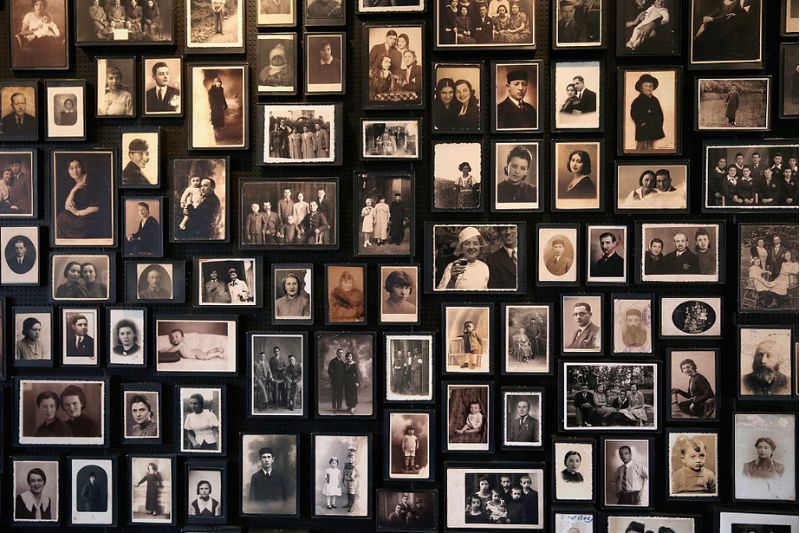I couldn’t concentrate after hearing on radio about Hamas’ ferocious attack on Southern Israel. I didn’t feel like celebrating my birthday the following day. During the week, I read widely on the war, listened to podcasts and followed social media closely. There were deep feelings of sadness and fear. Now I wonder why I feel so emotional about what’s happening in Israel.

Part of the immediate reason is because I have relatives living in central Israel and so I worry about them. I have a right of return to Israel because I am Jewish. But this still doesn’t explain why I feel a strong connection to Jews in Israel. After all, I live almost 14,000 kilometres from the country. And, like a lot of the Jews living in Victoria, I tend to only go to synagogue for the High Holy days, in my case St Kilda Shule, where the Rabbi rings people on their birthdays.
I only have a smattering of Hebrew and I don’t keep kosher like my ancestors did. My mum, who doesn’t keep kosher now, often reminds me how important kosher was in her family. She tells the story of how she thought she’d ‘be struck down by G-D’ when she first entered a non-kosher butcher as a teenager with her friend.
When I dig deeper, a large part of my feelings of connectedness to Jews in Israel and around the world can be explained by my link to Jewish history. There is the cultural and broader history and my own family history. So many of the Jewish festivals commemorate Jews escaping persecution. Purim celebrates the defeat of a plot to destroy the Jews of Persia and Pesach (Passover) commemorates the deliverance of the Jewish people from bondage in ancient Egypt.
And, then there is the expulsion of Jews at various times in history from places such as Jerusalem, France, Spain, Portugal, Russia, and England, which banished Jews from 1290 until after 1650.
So much of this Jewish history of persecution and displacement can be seen through the lens of my family’s history. My mum’s father was born in London’s Spitalfields, but his parents were Polish and had left their town due to persecution and rising antisemitism. I don’t know how many times my grandfather’s ancestors had to move countries because of persecution.
'I attended the Jewish vigil recently at Caulfield Park to remember the Jews, Arab Israelis, Nepalese students and Thai nationals who perished in the Hamas attack. Thousands of Jews — secular, progressive and orthodox, young, old and family groups — attended supported by the Melbourne Archbishop of Melbourne Peter Comensoli, members of the Hindu community and bipartisan support from the major parties.'
The Russian pogroms, which started in 1881, directly affected my family. My great-great grandparents Hyman and Hanna Pearlman and most of their children came to Melbourne between 1892 and 1895 to escape the massacre of Jews in their town of Mogilev, now a town in Belarus.
My maternal great-great grandparents Solomon and Annie Jacobs escaped poverty and discrimination in Kovno, then part of the Polish-Lithuanian Commonwealth, to London’s Spitalfields in the mid-1870s. They moved again to Melbourne with their six children in 1888 to also escape poverty and rising antisemitism.
A great-uncle, who has since died, managed to escape Germany just before World War II began and made his way with his mother and sister to London. But in England he was viewed as an enemy and forced onto the Dunera, which sailed to Australia. He ended up in a camp. My partner’s father was also a Dunera boy and in an almost unbelievable coincidence knew my great-uncle and was the best man at his wedding. My partner’s paternal grandparents perished in the Holocaust, and his mother’s family escaped Germany and sailed to Australia because it was the only country that would take them.
Much of what forced my ancestors to escape where they were living was based on hate and antisemitism, something Jews still have to deal with around the world. My family has told me stories about their experiences of antisemitism in Victoria. Before he died at 99 in 2018, my great-uncle Lloyd Pearlman told me about growing up in Ballarat and the abuse levelled at him at Ballarat High School because he was Jewish.
‘I couldn’t handle high school because of the antisemitism,’ he said. ‘It was awful. The kids called me names; they’d point you out all the time. There was a teacher who would bang me across the ears and say, "Now look here you little Jew get out of here. You little Jew, you’re not wanted here." It was horrible.’
My great-uncle was dux at his primary school, but he left his high school early because of the antisemitism. He wanted to be a doctor.
I attended the Jewish vigil recently at Caulfield Park to remember the Jews, Arab Israelis, Nepalese students and Thai nationals who perished in the Hamas attack. Thousands of Jews — secular, progressive and orthodox, young, old and family groups — attended supported by the Melbourne Archbishop of Melbourne Peter Comensoli, members of the Hindu community and bipartisan support from the major parties.
When I looked around at the crowd and saw videos of similar vigils around the world, I knew we were also united in a shared history.
Dr Erica Cervini is a freelance journalist and sessional academic.
Main image: A small selection of the personal photographs taken from prisoners as they arrived at the Auschwitz II Birkenau extermination camp. (Christopher Furlong / Getty Images)